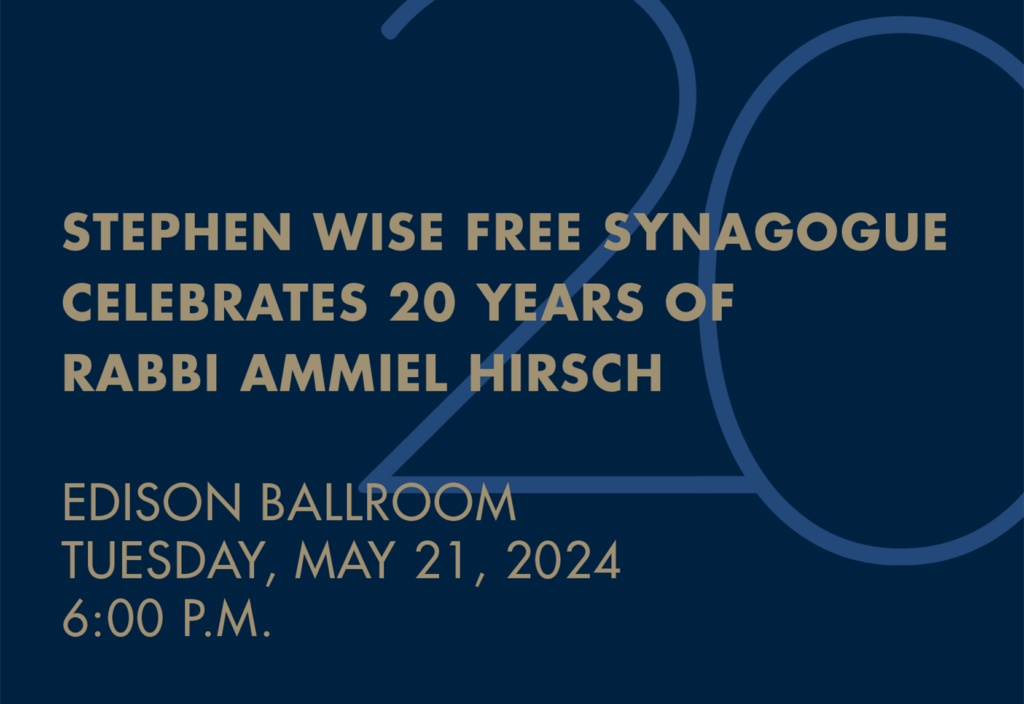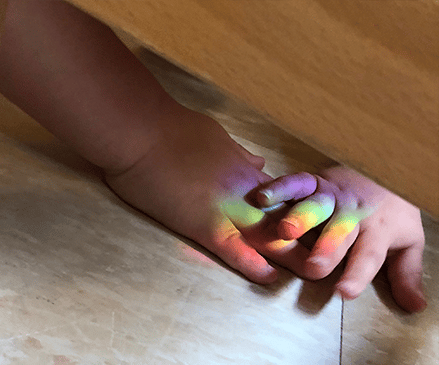
Our Early Childhood Center provides children 12 months to five years with a nurturing and stimulating environment based on the the world-renowned schools of Reggio Emilia, Italy, which value children as capable, strong, and rich with wonder and knowledge.
Here, Miriam Kalmar, director of of our Early Childhood Center, discusses how specialized programs meet young children where they are developmentally and guide them through the next stages of growth.
As you watch your toddler crawl across the carpet it’s hard to envision her in a classroom. School seems like such a far-away prospect that’s premature to begin thinking about. How could your child could be ready for school before she is speaking clearly or toilet trained?
At Stephen Wise Free Synagogue’s Early Childhood Center, our smallest classroom is home to children as young as 18 months – and the joy and wonder we experience there has led us to start calling it the “magic room.”
Sometimes, rainbows appear on the floor. “Where did that come from?” A curious child comes over to investigate. He puts his hand on top of the rainbow, and notices that it now appears on his hand. When he pulls it back to examine it closely, the rainbow is back on the floor.
Another child comes over and tries to cover the rainbow with a blanket. Somehow the rainbow now appears on the blanket. “Rainbow dancing,” one child cries delightedly as she sees the rainbow move back and forth.
Through close observations, the teachers “hear” the inherent questions the children are asking. Children don’t have to be verbal to express their curiosity about what they observe, and then test their theories. The investigation of the rainbow continues and the children marvel over the phenomenon created by a prism and light. And it’s this sense of wonder and inquiry in which we take so much joy, and that we encourage.
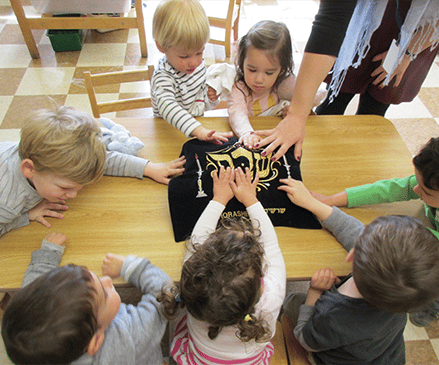
Children build trusting relationships with classroom teachers through our use of primary caregiving. Each child has one teacher with whom she is most comfortable. This teacher eases the separation from parent or nanny to school, helps with diapering, and eventually toileting, and becomes the point person for parents.
We have a gradual and steady separation period when children get to know the teachers, their peers and the classroom at a slow pace. The teachers also become important partners with parents. They offer guidance about development and share strategies that parents can use at home. The classroom community also offers parents a chance to socialize with other parents going through the similar joys and struggles of this stage of parenthood.
Parents are often amazed to see how independent their children become in the classroom. They help at cleanup, throw away their cups and napkins, and learn to put on their coats with little help from adults. They sit around the table together with classmates and eat their lunch with little need for support. The teachers view the children as capable and competent – a core tenet of our philosophy – and therefore offer appropriate challenges to build their confidence.
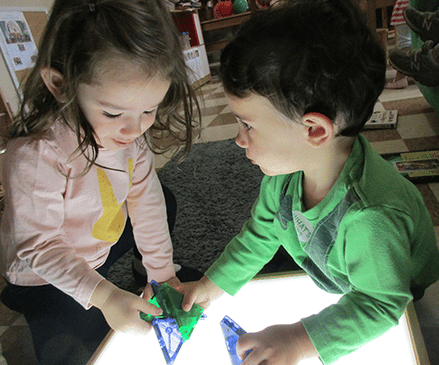
One of the most beautiful changes to observe is how these very young children begin to interact and care for each other. You see children build awareness of the other as they offer materials to a friend or ask about a classmate who is absent. When a child is crying because he misses his mom, his friend brings him his “family book” a book of photos of the child with the important people in his life. Empathy is something that very young children are capable of and it is fostered in a classroom where it is modeled by adults.
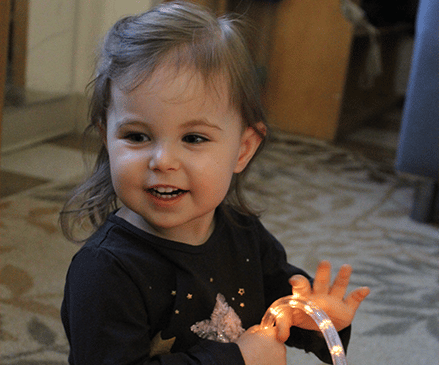
At our school, children are often exposed to exciting materials that they may not engage with at home. They are introduced to sensory materials such as water, sand, shaving cream and clay. Experienced teachers guide them through social interactions with peers as they learn to negotiate the use of materials. We have a full time studio teacher who works with children in the classrooms and the art studio to promote discovery and wonder. She offers varied materials such as stones, clay, paint and found objects. She guides children in exploration of light using a projector, a light table and transparent materials.
There is such tremendous growth that happens during this time in a child’s life. School offers opportunities that can’t be found at home and in the playground. Research continues to reveal how important the early years are for a person’s development.
Early childhood educators have known this instinctively for so long. We look at children as having a tremendous amount of capability and competency. Children have so much to teach us, and if we provide a caring, stimulating and magical environment, they will thrive and share the joy and wonder of learning with us.
So when you see your toddler crawl across the room and you can’t quite imagine her going to school, think of the experienced educators here at Stephen Wise who can partner with you on this early journey. They can help you see your child in a new light and open up possibilities you may not have known were possible.


